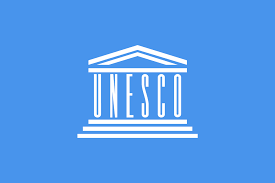CENTRAL ASIA: DATA JOURNALISM CURRICULUM INTEGRATION AT UNIVERSITIES
Views: 1682

The Faculty of Journalism, within the framework of the UNESCO International Program for the Development of Communication (IPDC), is implementing a project to integrate data journalism curricula in Central Asian universities.
The international program aims to implement UN objectives № 4 - Quality Education, № 5 - Gender Equality and № 17 - Sustainable Development through the use of resources prepared by the IPDC Global Initiative to Improve Journalism Education.
Sustainable Development Objectives support projects in the areas of Journalism and Communication, including research by Central Asian universities within the framework of UNESCO curricula that meet the requirements of gender equality.
The Department of Print and Electronic Media plans to facilitate the process of regional integration through the development of academic cooperation, the organization of seminars on big data in investigative journalism at universities in Kazakhstan, Tajikistan, Uzbekistan and Kyrgyzstan and the distribution of UNESCO instruction and resource exchange. In the cities of Almaty, Dushanbe, Tashkent and Bishkek, with the participation of international and domestic specialists, trainings on data journalism will be held for the preparation of curricula at these universities.
As a result of trainings aimed at mastering new knowledge and skills, the main task is the exchange of experience and its development between the participating countries. Improving data journalism education based on IPDC best practices in journalism education is a priority for Central Asian universities.
The project aims to introduce UNESCO curricula on journalism education in 55 universities in Central Asia. In the work of Central Asian journalists, data journalism has become an effective tool for using interactive graphics and visual content. But at this stage, the most important facts and historical data are lost. Therefore, it is necessary to train faculty / researchers in order to adapt the UNESCO data journalism curriculum based on effective application in investigative journalism.
Investigative journalism using journalism data has not yet become a separate genre in the region. This project will contribute to improving the quality of education in information journalism at 19 journalism universities in the Central Asian region, which will increase the effectiveness of investigative journalism. The proposed project will include the integration and adaptation of the UNESCO information journalism curriculum for conducting investigative journalism on education, gender, health in Central Asian countries. Scientists from universities in Kazakhstan, Uzbekistan, Kyrgyzstan and Tajikistan, most of whom are members of the Association of Central Asian Universities, will contribute to the achievement of the Sustainable Development Goals in journalism and communication. Since 2019, KazNU named after Al-Farabi has been implementing the master's programs "Data-journalism" and "Big Data and journalism" (a double master's degree program in conjunction with the University of Istanbul).
Integration of data journalism into the educational processes of national universities of journalism and communications in Central Asia will contribute to the development of regional academic cooperation and the effective implementation of UNESCO's international communication development programs.








